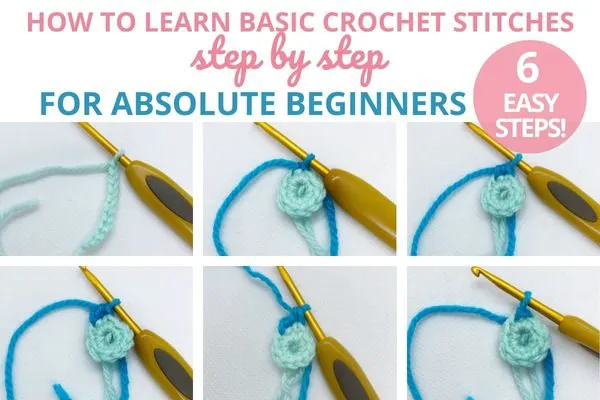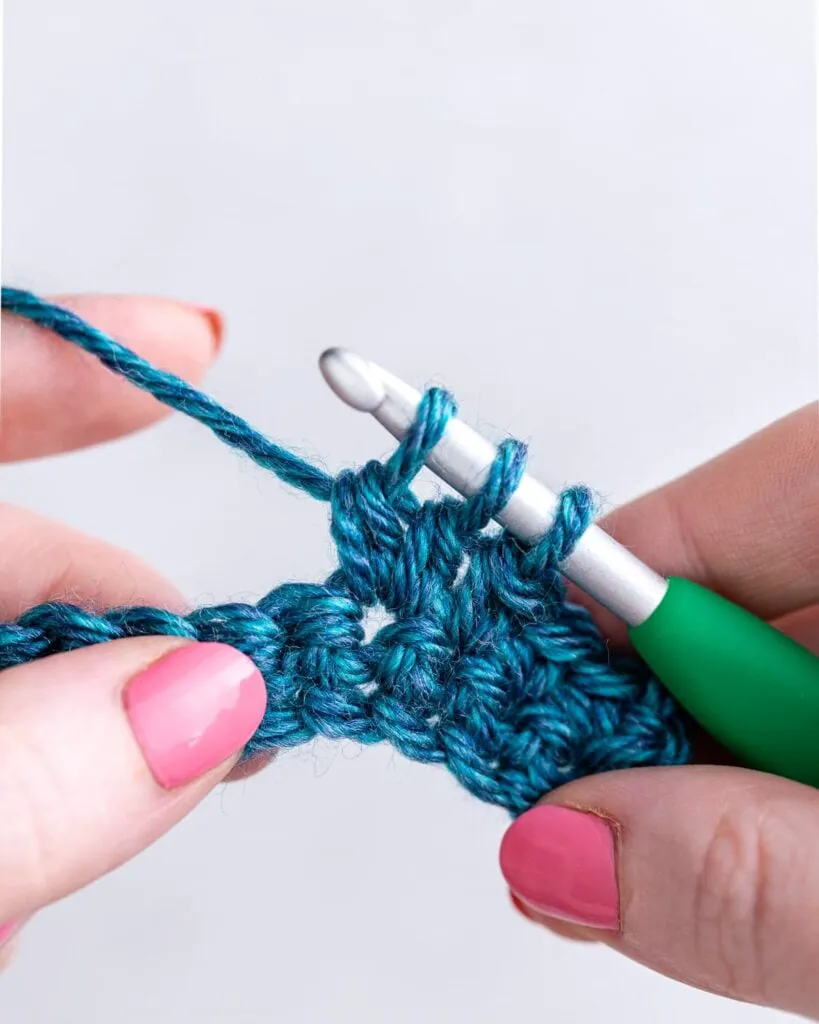What Does "BO" Mean in Crochet?
Understanding Crochet Abbreviations: BO Explained
Understanding Crochet Abbreviations: BO Explained
FAQs
Check out the answers to the most frequently asked questions about the bobble stitch.
Does the bobble stitch use a lot of yarn?
Yes, bobble stitch is a yarn eater. Since you are essentially making 3-5 double crochets in the same stitch, each bobble will use 3-5x as much yarn as a typical double crochet.
Do you crochet a bobble stitch on the right or wrong side?
Bobbles pop through to the opposite side as you make them. Make your bobbles on the wrong side (WS) rows if you want them to appear on the right side (RS) of the fabric.
What is the difference between a popcorn stitch and a bobble stitch?
A popcorn stitch is a group of completed double crochet stitches that are joined together with a slip stitch at the top.
In contrast, a bobble stitch is a group of incomplete double crochets joined together at the top (like a 5-dc decrease.)
What is the difference between a puff stitch and a bobble stitch?
A puff stitch is like making a group of incomplete half-double crochet stitches into one stitch.
Contrast that to the bobble stitch, which is like making a group of incomplete double crochets into one stitch.
Is the cluster stitch the same as the bobble stitch?
No. The cluster stitch is a double crochet decrease worked across multiple stitches, while the bobble stitch is like a double crochet decrease worked in a single stitch.
Video showcasing different ways to make bobble stitches
Try out some of these free patterns on my blog to see the bobble stitch in action.
Bobble Stitch Swatches
Now that you know the basics of the bobble stitch, let’s learn how to crochet a few different swatches of bobble stitch.
Materials and Tools
Yarn: Any yarn works, but medium weight (aka worsted weight) is beginner-friendly.
Hook: Use the size recommended for your yarn.
Scissors and tapestry needle: Keep these on hand for those finishing touches.
I used Lion Brand Heartland yarn and a 5.5mm hook in this tutorial.
Abbreviations
- Bo – bobble
- Ch- chain
- Sc – single crochet
- St/s – stitch/es
- RS – right side
- WS – wrong side
Note: All bobbles are made on wrong side (WS) rows.
Even Bobble Swatch
Row 1: Ch a multiple of 4. Sc in the second chain from hook and in each ch across. Turn.
Row 2 (WS): Ch 1 (does not count as a st, here and throughout) sc in next 3 sts, *bo, sc in next 3 sts; repeat from * across. Turn.
Rows 3-5: Ch 1, sc in each st across. Turn.
Repeat Rows 2-5 to continue the pattern.
Offset Bobble Swatch
Row 1: Ch a multiple of 4+3. Sc in the second chain from hook and in each ch across, turn.
Row 2 (WS): Ch 1 (does not count as a st, here and throughout) sc in next 3 sts, *bo, sc in next 3 sts; repeat from * across to the last 4 sts, bo, sc in the last 3 sts. Turn.
Rows 3-5: Ch 1, sc in each st across. Turn.
Row 6 (WS): Ch 1, sc, *bo, sc in next 3 sts; repeat from * across to the last 2 sts, bo, sc in the last st. Turn.
Rows 7-8: Ch 1, sc in each st across. Turn.
Repeat rows 1-8 to continue the pattern.
A Complete List of Crochet Abbreviations and Terms
Hello, yarn addicts! Welcome to Crochet Chronicles, your ultimate source of crochet inspiration and information. In this article, we will explore one of the most essential topics for any crocheter: crochet abbreviations and terms.
If you are new to crochet, you may feel overwhelmed by the amount of abbreviations and terms that are used in crochet patterns and books. You may wonder what they mean, how to pronounce them, and how to use them correctly. Don’t worry, we are here to help you!
How to Crochet: A Complete Guide for Beginners How to Choose the Best Yarn for Crochet Project
Crochet abbreviations and terms are a way of simplifying and shortening crochet instructions, so that they are easier to read and follow. They also save space and time for both the designers and the readers. For example, instead of writing “chain three, single crochet in the next stitch, chain one, skip one stitch, single crochet in the next stitch” repeatedly, you can simply write “(ch 3, sc in next st, ch 1, sk 1 st, sc in next st) across”.
To help you understand and master crochet abbreviations and terms, we have compiled a comprehensive list of more than 140 common ones, with definitions and examples, for both US and UK terminology. We have also included some crochet slang and terminology that you may encounter online or in crochet communities. We hope that this list will serve as a handy reference for you whenever you need it.



Tegs:
Search
Recent Posts
-
Find the Perfect Stabilizer for Your T-Shirt Embroidery Projects
Apr 14 2025
-
What Can You Make with Embroidery? A Guide to Creative Projects
Apr 14 2025
-
Fusion Hair Weaves: The Ultimate Guide to This Versatile Style
Apr 14 2025
-
Paper Quilling Essentials: Choosing the Right Glue for Your Projects
Apr 14 2025
Subscribe to Updates
Get the latest posts and fashion insights directly in your inbox.